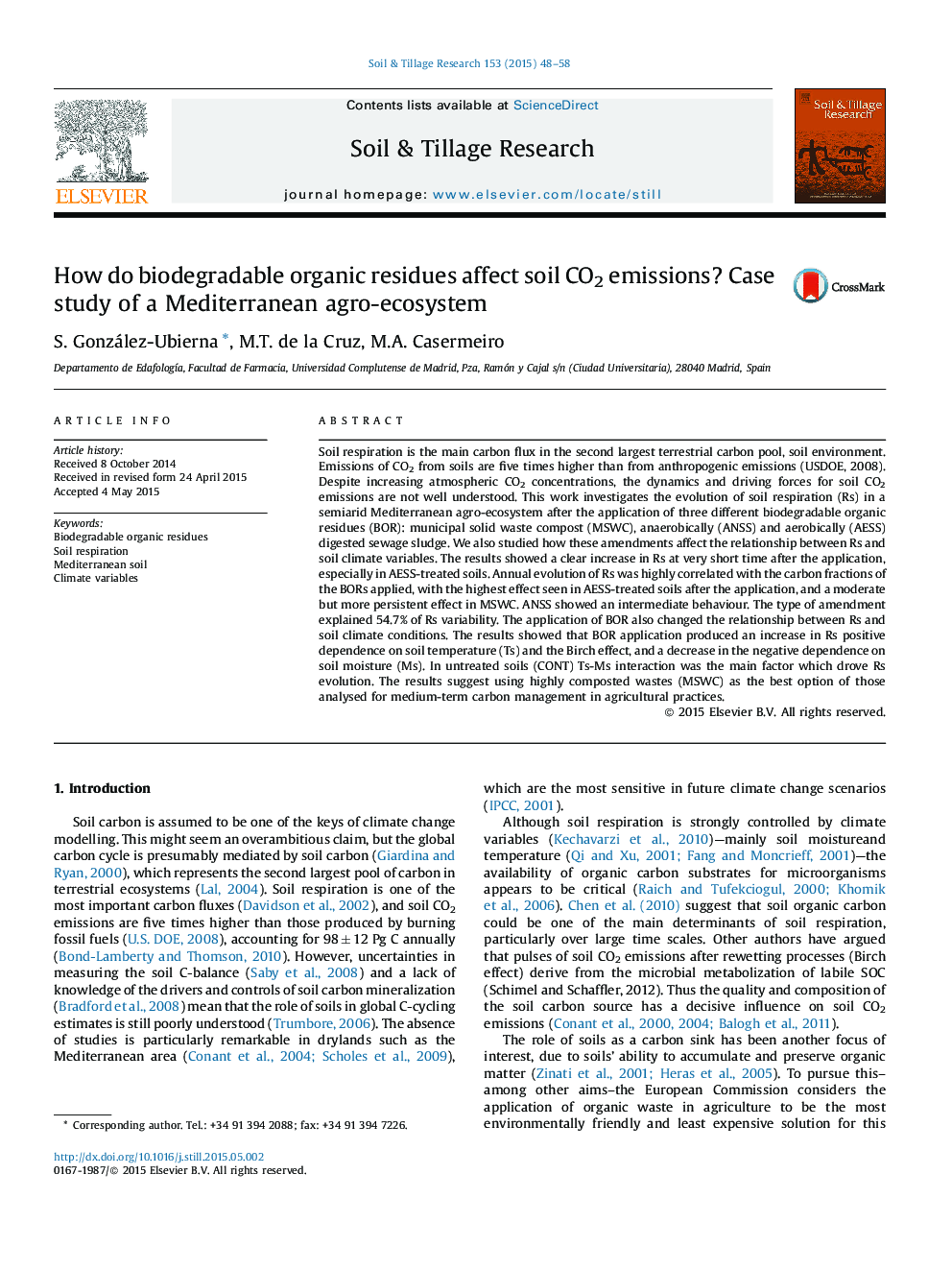| کد مقاله | کد نشریه | سال انتشار | مقاله انگلیسی | نسخه تمام متن |
|---|---|---|---|---|
| 305519 | 513032 | 2015 | 11 صفحه PDF | دانلود رایگان |

• Soil application of organic residues changes the relations between soil respiration and climate.
• The single effect of soil temperature was the main driver of respiration in treated soils.
• In control soils the main driver of respiration was the soil temperature and moisture interaction.
• Intensity of priming effect was higher in AESS than in ANSS and MSWC treatments.
Soil respiration is the main carbon flux in the second largest terrestrial carbon pool, soil environment. Emissions of CO2 from soils are five times higher than from anthropogenic emissions (USDOE, 2008). Despite increasing atmospheric CO2 concentrations, the dynamics and driving forces for soil CO2 emissions are not well understood. This work investigates the evolution of soil respiration (Rs) in a semiarid Mediterranean agro-ecosystem after the application of three different biodegradable organic residues (BOR): municipal solid waste compost (MSWC), anaerobically (ANSS) and aerobically (AESS) digested sewage sludge. We also studied how these amendments affect the relationship between Rs and soil climate variables. The results showed a clear increase in Rs at very short time after the application, especially in AESS-treated soils. Annual evolution of Rs was highly correlated with the carbon fractions of the BORs applied, with the highest effect seen in AESS-treated soils after the application, and a moderate but more persistent effect in MSWC. ANSS showed an intermediate behaviour. The type of amendment explained 54.7% of Rs variability. The application of BOR also changed the relationship between Rs and soil climate conditions. The results showed that BOR application produced an increase in Rs positive dependence on soil temperature (Ts) and the Birch effect, and a decrease in the negative dependence on soil moisture (Ms). In untreated soils (CONT) Ts-Ms interaction was the main factor which drove Rs evolution. The results suggest using highly composted wastes (MSWC) as the best option of those analysed for medium-term carbon management in agricultural practices.
Journal: Soil and Tillage Research - Volume 153, November 2015, Pages 48–58